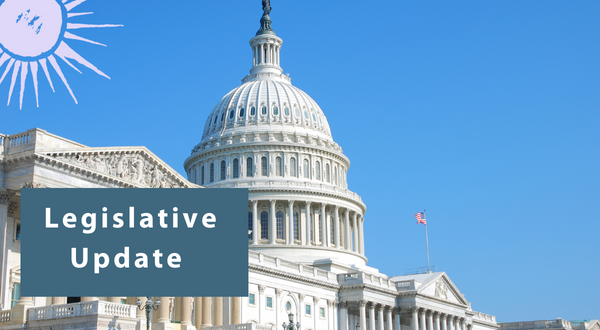Immigrant Families: We Can All Afford to Live With Dignity
Cruel cuts to vital services come at a time of soaring costs for those who need it the most
Giovana Oaxaca
August 11, 2025
The recently passed budget reconciliation bill diverts resources from communities to mass deportation efforts and border militarization. In this third installment of a three-part series (Part 1, Part 2), Giovana Oaxaca, NETWORK Senior Government Relations Advocate for Immigration, explores how the bill cruelly cuts services to vital services, but also the road ahead that justice-seekers can pursue to defeat these measures.
In communities across the country, working families are already grappling with rising costs. Groceries, rent, childcare, and health care have all surged in price (and will continue to do so thanks to the recently passed budget bill), leaving many households struggling to make ends meet. Yet, Congress will deepen the hardship by stripping away vital support from those who need them most.

Sisters of St. Joseph of Brentwood, NY hold a sign at a June event on Capitol Hill at which Catholic Sisters strongly opposed the budget reconciliation bill.
This bill proposes to render many qualifying and lawfully present immigrants ineligible for vital programs while simultaneously slashing these programs by billions for U.S. citizens and lawful permanent residents. Except for green card holders, individuals residing in the U.S. according to a Compact of Free Association, and certain Cuban and Haitian entrants, the following programs will be severely restricted for non-citizens:
- Through passage of the budget reconciliation act, Congress ends Medicaid and Children’s Health Insurance Program (CHIP) for many of the most vulnerable including refugees, asylees, and several others.
- Congress also ends subsidized ACA Marketplace coverage for asylees, refugees, people with Temporary Protected Status, and Deferred Action for Childhood Arrivals (DACA) recipients beginning on January 1, 2027. Furthermore, all lawfully present immigrants with incomes under 100 percent of the FPL would be rendered ineligible for ACA marketplace coverage beginning on January 1, 2026
- Despite promises to protect Medicare, the bill quietly strips access from many eligible immigrants. This means those who had coverage at the time of the bill will have their coverage end after January 4, 2027. This move leaves thousands of ageing individuals without the care they’ve relied on.
- Food insecurity is also poised to worsen. The bill would end food assistance for eligible immigrants receiving Supplemental Nutrition Assistance Program (SNAP).
The Road Ahead
Harsh policies needlessly instill fear in communities and drive people deeper into the shadows. Common-sense immigration policies should uphold dignity, promote fairness and lawfulness, and prioritize meaningful reforms like a path to permanent legal status, not unnecessarily punish those who are in good standing in their communities as this administration has relentlessly done. Catholic Social Justice calls us to uphold the dignity of every human being. The real human costs of this immoral bill are undeniable.
Legislation must bear in mind human dignity and the common good, the principle that every person should have the opportunity to live with dignity, contribute to society, and reach their God-given potential. The bills’ swift passage and lack of guidance create conditions ripe for abuse, including worsening overcrowding in detention facilities, fast-tracked deportations that bypass due process, and the hasty awarding of contracts without proper oversight.
As Congress debates even more federal funding for ICE through the annual appropriations process, NETWORK is closely monitoring H.R. 4016, the Department of Defense Appropriations Act, 2026 and H.R.4213 – Department of Homeland Security Appropriations Act, 2026, which increase funds related to enforcement, detention, and border security. This alarming increase in interior enforcement in our communities is coming at the expense of taxpayers and family unity, and we must stand firm.
Concerned people of faith can help support family unity and their communities by sharing know-your-rights materials and connecting with local community-based organizations, uphold dignity by supporting just policies like the restoration of sensitive locations policy guidance to ICE, and push for robust oversight and accountability from local and federal government officials and agencies.
Read Part 1 on immigration enforcement and detention.
Read Part 2 on how unfair government fees threaten family unity.









